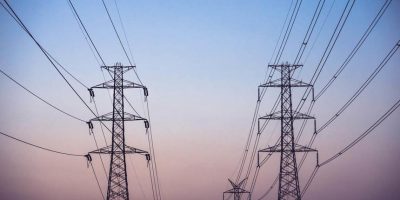Tariff war: Respect state electricity regulators – FG warns Discos

The Federal Government, through the Nigerian Electricity Regulatory Commission, has told electricity distribution companies to treat state regulators with respect. The Vice Chairman of NERC, Musiliu Oseni, stated this at the commission’s quarterly stakeholders meeting, which ended in Lagos on Tuesday.
Power distributors had repeatedly countered state regulatory commissions on matters of electricity tariffs, a development that consistently pitched the two groups at opposing ends.
Oseni urged the Discos to strengthen their relationships with state regulators, underscoring the need for open communication, transparency, accountability, and mutual respect.
“Discos must do better with state regulators—first impressions last. Be open about your challenges so they can work with you. Above all, treat state regulators with the respect they deserve. A timely reminder that collaboration is essential to building a fair, resilient, and sustainable electricity market for Nigeria,” Oseni said.
However, Oseni also urged State Electricity Regulatory Commissions/Bureaus to prioritise advancing their state electricity markets “rather than relying on Federal Government subsidies.”
The PUNCH earlier reported that, as the crisis between states and electricity distribution companies continues to degenerate over who has the power to fix electricity tariffs, NERC had to summon all the stakeholders to a meeting.
Energy commissioners of state governments, under their umbrella body known as the Forum of Commissioners for Power and Energy in Nigeria, have repeatedly insisted that the Electricity Act, 2023 (Amended), has empowered state governments to regulate their respective power markets.
But power distribution companies, under the aegis of the Association of Nigerian Electricity Distributors, insisted that, although the Act enabled the states to regulate their power markets, the state governments lack the power to put a price on cross-border electricity.
As a result of this, neither the states nor the Discos are ready to shift ground over who has the authority to regulate electricity tariffs. As state regulators make moves to design tariffs for the electricity markets in their domains, starting with Enugu State, power distribution companies declared that this cannot work.
To address this, the regulatory agency met with state regulators, power distributors, and other stakeholders on Monday and Tuesday to tackle transition challenges in the sector, following concerns around the tariffs payable by consumers.
According to reports by NERC, the Tuesday sessions featured in-depth discussions on the integration of generation plants into the SCADA system and ongoing preparations for synchronisation with the West African Power Pool, including trial tests to ensure a smooth transition.
The commission was said to have reaffirmed its continuous commitment to supporting stakeholders, strengthening collaboration, and ensuring the long-term success of the NESI as the sector transitions into a more efficient and sustainable future.
“Discussions focused on the SCADA system and synchronisation with the West African Power Pool, covering timelines and GenCo compliance. The commission directed NISO to conduct a synchronisation trial to address any imperfections ahead of full WAPP integration,” the commission said in a post on its social media handles.
While emphasising the need to meet the extended June 2026 deadline, the commission reaffirmed its readiness to provide the necessary support for successful implementation.
Also, the Chairman of the Presidential Committee on Fiscal Policy and Tax Reforms, Mr Taiwo Oyedele, delivered a detailed presentation to NESI stakeholders on the new tax reform laws and their far-reaching implications for the electricity industry, saying, “We want the sector to be able to thrive because your success is our success.”
His presentation reportedly provided clarity on how the reforms will impact sector players, from tax breaks to compliance requirements and revenue management. He also highlighted the opportunities these changes present for building a more transparent and efficient fiscal environment within the Nigerian Electricity Supply Industry. (Punch)

